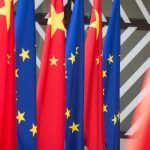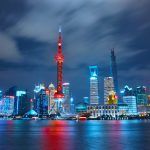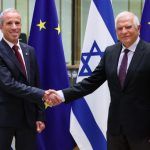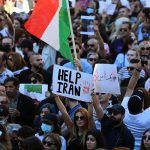The 24th EU-China summit took place in Beijing, China. This was the first in-person EU-China summit since 2019.

President of the European Council, Charles Michel, and President of the European Commission, Ursula von der Leyen, accompanied by High Representative Josep Borrell, represented the EU. They met Chinese President Xi Jinping and Premier Li Qiang at two separate sessions.
The summit was an opportunity to engage with China at the highest level and to pursue constructive and stable EU-China relations.
The EU and China have a shared interest in a stable and constructive relationship based on respect for the international rules-based order.
President Charles Michel
Discussions at the summit revolved around the state of EU-China relations , including the trade and economic relationship, and international issues.
- 24th EU-China summit: engaging to promote our values and defend our interests (press release, 7 December 2023)
- Remarks by President Charles Michel at the press conference following the EU-China summit in Beijing (press release, 7 December 2023)
Trade and economy
The EU and China are major economic partners. However, the EU’s trade deficit with China is almost €400 billion.
The EU therefore stressed to China the importance of achieving a more balanced economic relationship with a level playing field and reciprocity.
The EU expects China to take more concrete action to improve market access and the investment environment for EU investors and exporters.
The EU aims to strengthen resilience by addressing critical dependencies in specific sectors, in full compliance with the World Trade Organization rules.
Russia’s war of aggression against Ukraine
Infographic – EU solidarity with Ukraine
The leaders discussed Russia’s war of aggression against Ukraine.
EU countries are committed to continuing their strong support for the people of Ukraine.
During the summit, the EU:
- reiterated that, as a permanent member of the UN Security Council, China has a special responsibility in upholding the UN Charter’s core principles
- strongly encouraged China to engage on Ukraine’s peace formula
- insisted that China should refrain from supplying lethal weapons to Russia
- reiterated how important it is that China help to prevent Russia from circumventing sanctions
- EU response to Russia’s invasion of Ukraine (background information)
- EU restrictive measures in response to the crisis in Ukraine (background information)
Middle East
EU and Chinese leaders also discussed the tragic events unfolding in the Middle East.
The EU condemned in the strongest terms the indiscriminate and brutal terrorist attacks by Hamas against Israel.
The EU reiterated Israel’s right to defend itself in line with international humanitarian law.
The EU and China agreed that getting life-saving aid to the most vulnerable must be a top priority.
Since the start of the war, the EU has quadrupled its humanitarian aid to over 100 million euro.
As global players, we agreed that the European Union and China have a special responsibility to work for peace.
President Charles Michel
Both the EU and China support the revival of a political process based on the two-state solution.
Global challenges
Infographic – Paris Agreement: the EU’s road to climate neutrality
EU and Chinese leaders discussed areas of shared interest such as climate change and health.
The EU acknowledged recent progress on the expansion of renewable energy and China’s intention to tackle methane emissions.
The EU encouraged China to:
- triple renewable energy capacity
- double energy efficiency by 2030
- join the global methane pledge
The EU and China are cooperating to improve global health. This includes work on an international pandemic treaty.
Human rights
The EU welcomed the resumption of the human rights dialogue.
For the EU, human rights and fundamental freedoms are universal. They are non-negotiable.
President Charles Michel
During the summit, the EU nevertheless reiterated its deep concerns about the human rights situation in China, in particular about:
- systemic human rights violations in Xinjiang and Tibet
- forced labour
- the treatment of human rights defenders and persons belonging to minorities
Asian region
The EU reaffirmed its ‘one China’ policy and expressed its concerns about the growing tensions in the Taiwan Strait and the East and South China Seas.
In the EU, we are opposed to any unilateral attempts to change the status quo by force or coercion.
President Charles Michel






Leave a Reply